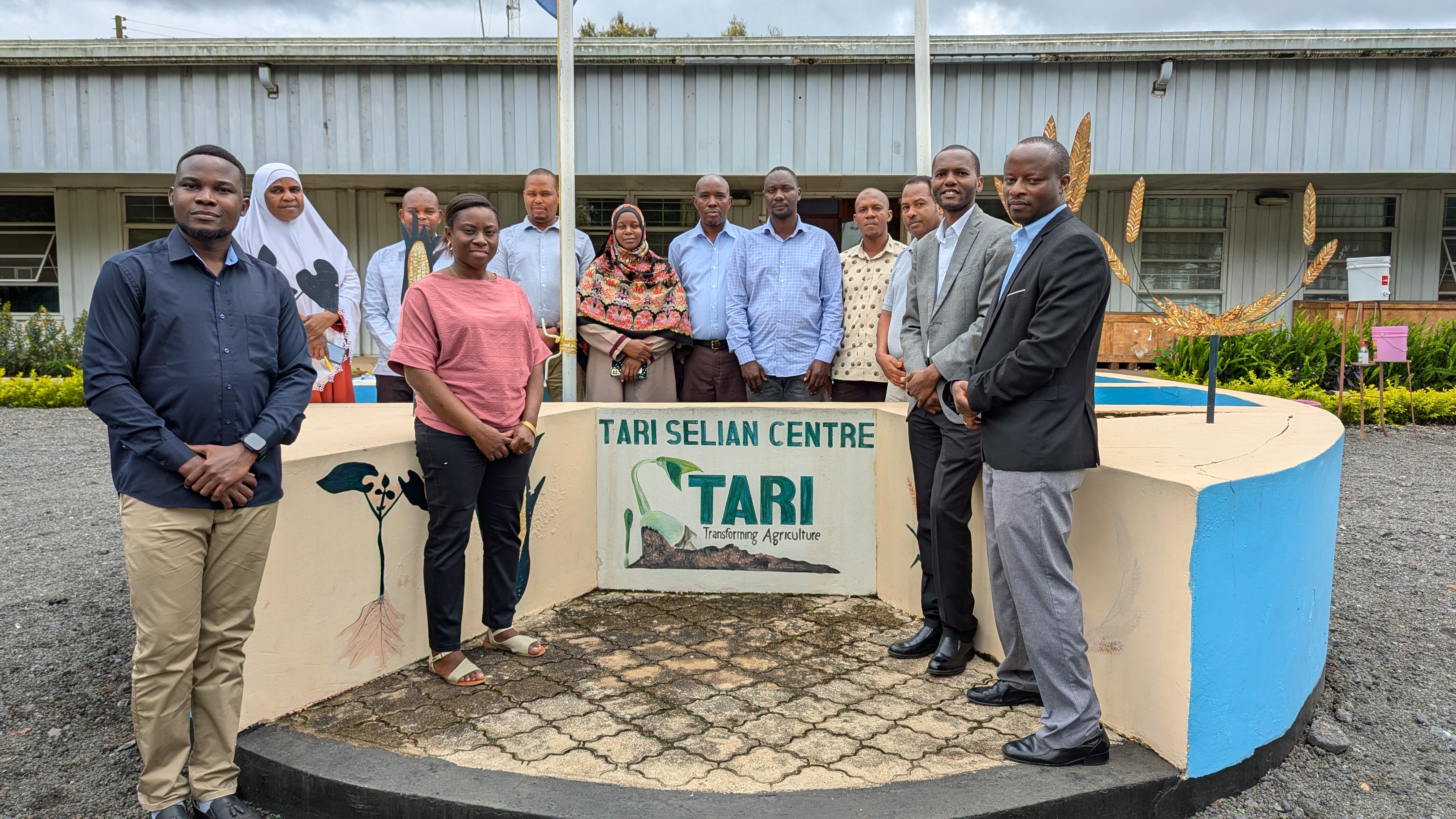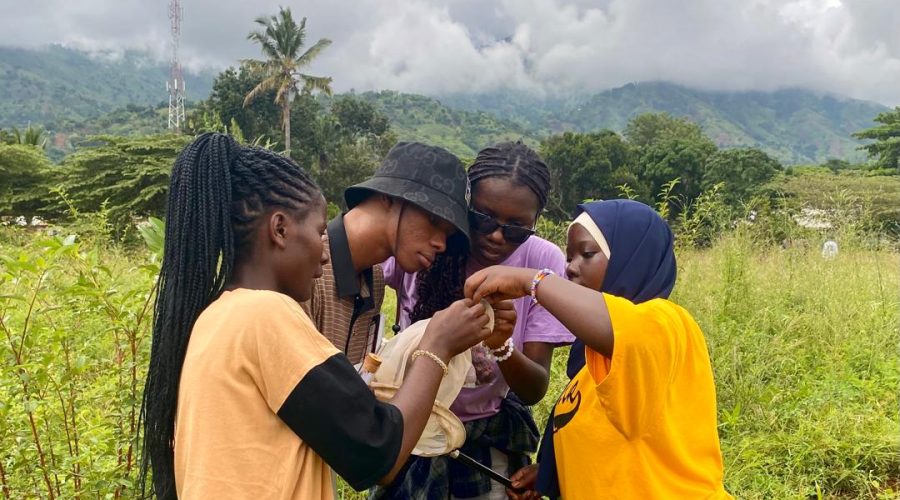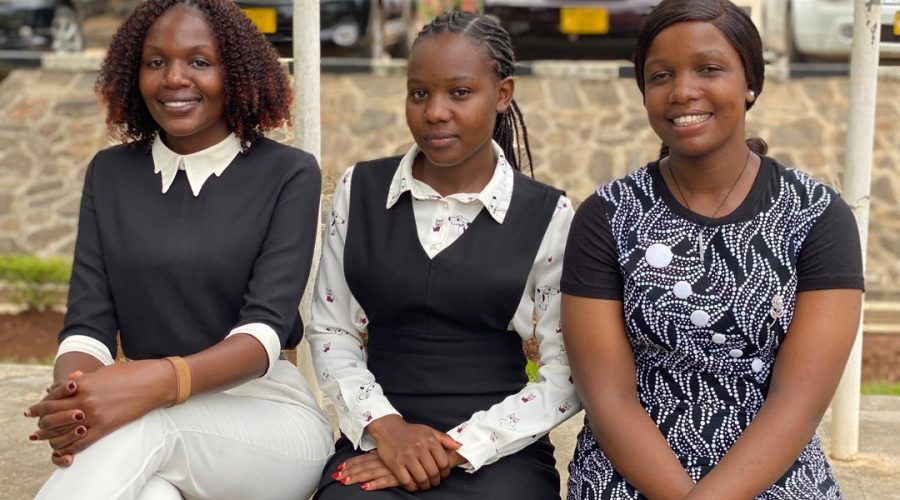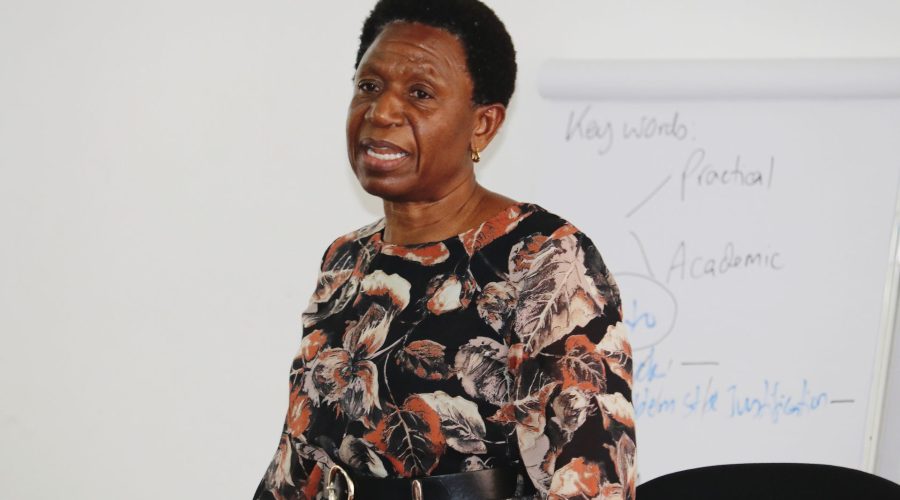The Tanzania Agricultural Research Institute (TARI), in collaboration with Sokoine University of Agriculture (SUA) and the Zanzibar Agricultural Research Institute (ZARI), has embarked on an ambitious project aimed at enhancing the resilience of common beans in Tanzania. Funded by the Norwegian Agency for Development Cooperation (NORAD) through Tanzania Commission for Science and Technology (COSTECH), the project, titled “Development of Common Bean Varieties Adapted to Heat, Drought, and Diseases Caused by Climate Change Variation in Tanzania,” focuses on mitigating the impact of diseases that have become more prevalent due to climate change.
A recent meeting, attended by 13 key members from TARI, SUA, and ZARI, was convened to review progress and outline the next steps in achieving the project’s objectives at TARI Selian. SUA was represented by Dr. Luseko Chilagane, Dr. Beatrice Mwaipopo, Mr. Emanuel Nkuwi and Mr. Michael Lucas from the Department of Crop Science and Horticulture. This collaborative effort is crucial to ensuring that Tanzania’s common bean crops thrive despite the challenges posed by unpredictable weather patterns and emerging diseases.
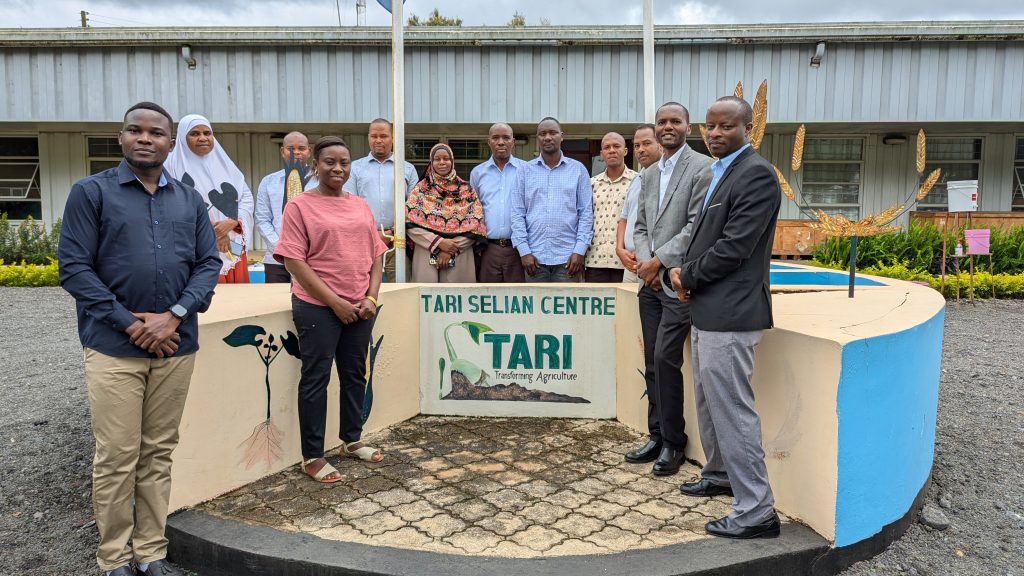
The project aims to identify and characterize diseases affecting common beans, particularly those intensified by climate change. Comprehensive surveys and sample collections are being conducted across 13 districts, covering the Southern Highland Zone, Western Zone, Lake Zone, Eastern Zone, Northern Zone, and Zanzibar. This rigorous data collection is essential for understanding the disease landscape and developing targeted solutions.
The meeting commenced with an opening remark by the Director General of TARI Selian, who emphasized the critical importance of common beans to Tanzanian livelihoods and the need for research to address the challenges facing the crop: “We cannot escape the solving of bean crop problems, rather face them and solve them through research.”
Dr. Papias H. Binagwa, a Senior Research Officer at TARI and Principal Investigator of the project, provided a briefing on the project’s core objective: to develop common bean varieties that will enhance the livelihoods of Tanzanian farmers. “By breeding beans that are resistant to heat, drought, and diseases, the project aims to ensure food security and stable incomes for farmers”, he insisted.
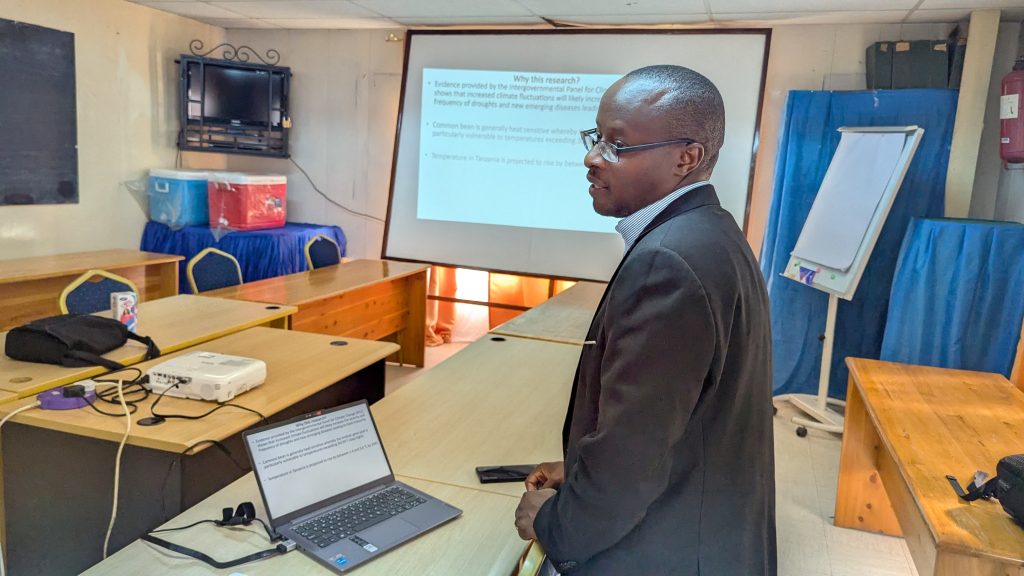
The project team presented the methodology for conducting disease surveys using various tools, emphasizing the importance of representativeness and quality in sample collection. Beatrice V. Mwaipopo, a senior Lecturer at Sokoine University of Agriculture and Co-Principal Investigator, elaborated on the critical role high-quality sampling plays in achieving the project’s goals. “Accurate and representative samples ensure the reliability of research results”, she insisted as was elaborating the sampling methodology. On her side, Ms. Salma O. Mohamed, Senior researcher of ZARI and Co-Principal Investigator, she stressed on the importance of accurate sample collection for achieving reliable results that will drive meaningful outcomes for bean production and consumption. Engaging and informing farmers throughout the sampling phase is also a key component of the project.
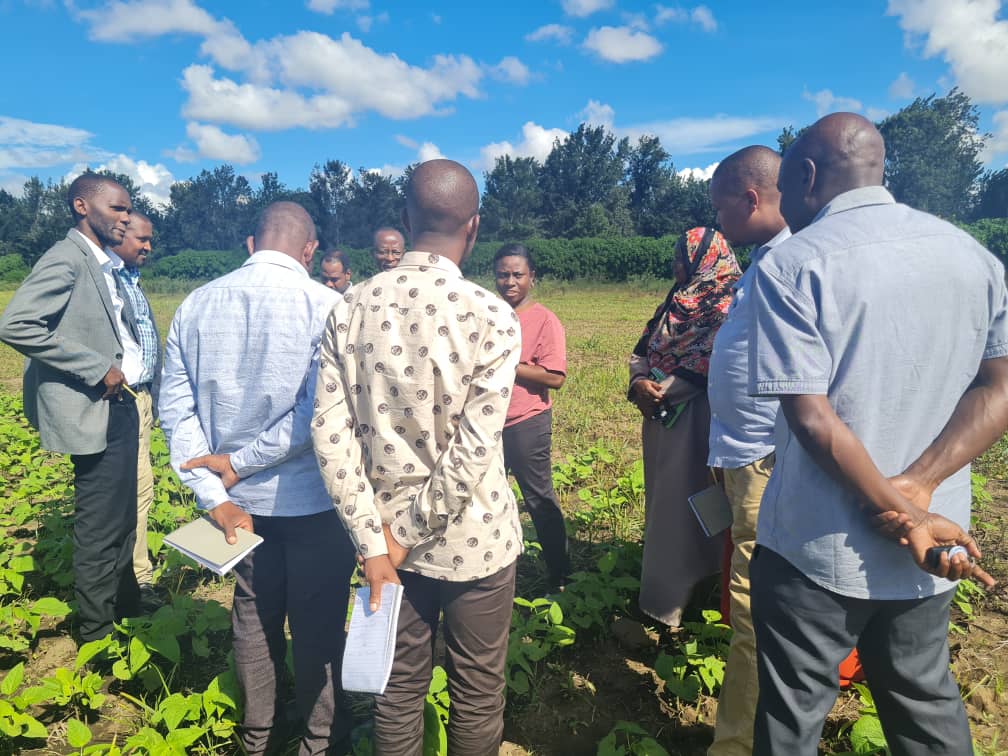
Dr. Luseko A. Chilagane, a Senior Lecturer at Sokoine University of Agriculture and Co-Principal Investigator, highlighted the challenges posed by climate change and the necessity of breeding crops resilient to both diseases and climatic variations. He also addressed the economic burden that disease outbreaks impose on farmers, leading to increased production costs. Emphasizing on the need to address pathogens and climate change in agricultural research, Mr. Michael L. Daud, Assistant Lecturer at Sokoine University of Agriculture and PhD beneficiary of the project, added that “the project will provide sustainable solutions to mitigate the impact of climate-induced diseases, thereby benefiting farmers through the development of resilient and high-demand bean varieties”.
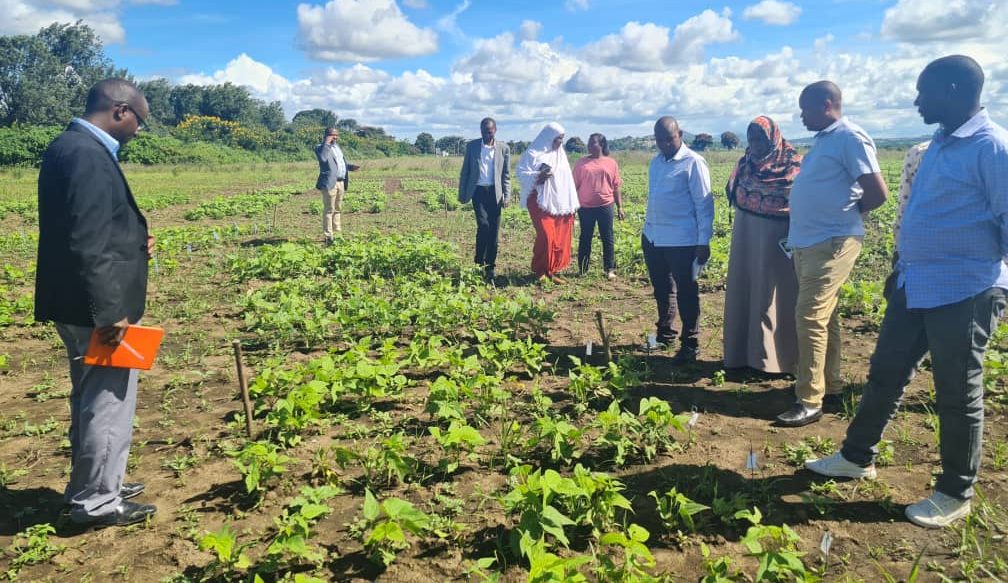
Furthermore, the members had the privilege to visit the TARI Selian bean breeding plots, where they practiced sampling techniques and learned about the ongoing progress in developing resilient bean varieties. This hands-on experience was invaluable in understanding the practical aspects of the project and the challenges faced in the field. The meeting concluded with a collective commitment to continue the implementation of the project and ensure its success. Emphasizing research, innovation, and sustainability, the collaboration between TARI, SUA, and ZARI is poised to make a significant impact on Tanzania’s agricultural sector. The development of heat- and drought-resistant, disease-tolerant common bean varieties will play a crucial role in improving food security and enhancing the livelihoods of Tanzanian farmers amid climate change.
As the project advances, the collaborative team remains dedicated to addressing the challenges facing Tanzania’s common bean industry. By fostering innovation in agricultural research, this initiative will help pave the way for a more resilient and sustainable future for Tanzanian farmers.

